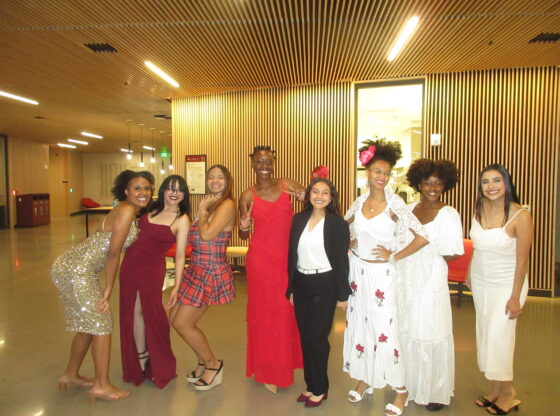Several graduate and undergraduate students at the Korbel School of International Studies have co-written a book with Professor Oliver Kaplan that focuses on difficult decisions forced upon civilians living through conflict.
The book is structured as a “choose your own adventure” type of story, in which the reader is put into the shoes of the protagonist by making decisions about what the character does.
The production process began during a course taught by Kaplan last year focused on civilian protection within conflict. Kaplan, after hearing feedback from his class, offered his students the chance to write some “scholarship-backed fiction chapters” based on what they had learned as their final project.
“My idea was to allow students to explore their creativity, find their voices and learn to enjoy writing as they engaged with the course material,” wrote Kaplan in an email to the Clarion.
Both the undergraduate and graduate versions of Kaplan’s class engaged in the project and ended up loving the idea. Afterwards, undergraduate and graduate students met with Kaplan, who offered them the chance to turn their work into a real book.
“I wanted to provide them an insider’s view of project management and the book publishing process,” wrote Kaplan.
The 10 students, composed of both undergraduate and graduate students, spent the next quarter planning and brainstorming potential chapter ideas. Once they had collaboratively created about 200 separate chapter ideas, they began splitting up the work amongst them and writing.
The book takes place in the fictional country of Ekra, in which a made-up paramilitary group called the RTF has taken over towns in an effort to overthrow the current regime.
The students didn’t want the characters, events or political movements in the book to resemble any real-world country or scenario, and thus made up lots of the book’s elements, including the religion of Ekra.
The protagonist, Ari, is a young person living through the conflict, and is faced with their first decision: to flee or stay.
“This is the first major decision of the book,” said Rosie Strum, an international studies undergraduate who took the original class with Kaplan last year.
Catalina Palacios, a political science and economics student, also has become involved with the book’s production, and is currently working with Strum on a chapter where Ari and their family decide to stay.
“They see the RTF march into their town, they see neighbors growing suspicious and turning on each other to gain influence with the RTF, they see soldiers their age populating the streets,” said Palacios.
The students didn’t want any decision to feel “wrong” or “right.” Instead, there are always complicating factors and risks that make each choice feel important.
They also didn’t frame either side of the conflict, the government or the RTF, as good or evil. Much like in real-life conflicts, there is no black and white, yet suffering is shared.
“The government has perpetuated violence against a group of people, but [the RTF] has responded in such a violent way, it’s not clear-cut. Nobody is completely in the right and nobody is completely in the wrong,” said Palacios.
The student writers wanted to illuminate the difficult choices that people living through these conflicts have to make, but they also strove not to glorify the experience inadvertently.
“In our discussions, we talked a lot about the ethics and morals of it, we didn’t want to glorify it… We had this idea of structuring it like a ‘choose your own adventure’ but also didn’t want to use that word and glorify it,” said Strum.
The unique life experiences of the student writers dictate each experience that Ari goes through.
“Catalina had a background as an EMT and included her medical knowledge in the scenarios in the book, we also had a student writer who’s deaf and incorporated their own experiences…It was so cool having so many people bring in those different experiences,” said Strum.
After the group had drafted some of the book’s material, Kaplan took several students to Flagstaff, Ariz., for an academic conference where they pitched and received feedback on what they had written.
“We’ve gotten to know each other on this personal level too, hanging out, going on the trip to Flagstaff, it felt like a bunch of friends,” said Strum.
The number of contributors to the book has been difficult, but also rewarding for the students.
“I couldn’t be more proud of our novel. Although the biggest challenge has been the various authors, that is what makes our novel so unique. I am so honored to be a part of this amazing project!” wrote Jadyn Ford, a former graduate student, in an email to the Clarion.
Now, Kaplan and the students are well on their way to finishing the book, having already found an editor and illustrator. They hope to have the book published by the end of the year.
They are also conducting interviews with refugees and other sources to ensure that their writing accurately depicts what a real person might face in one of these civilian conflicts. After publishing, the group plans to donate some of the book’s proceeds to Refugees International, a humanitarian organization advocating for greater assistance for displaced individuals.











